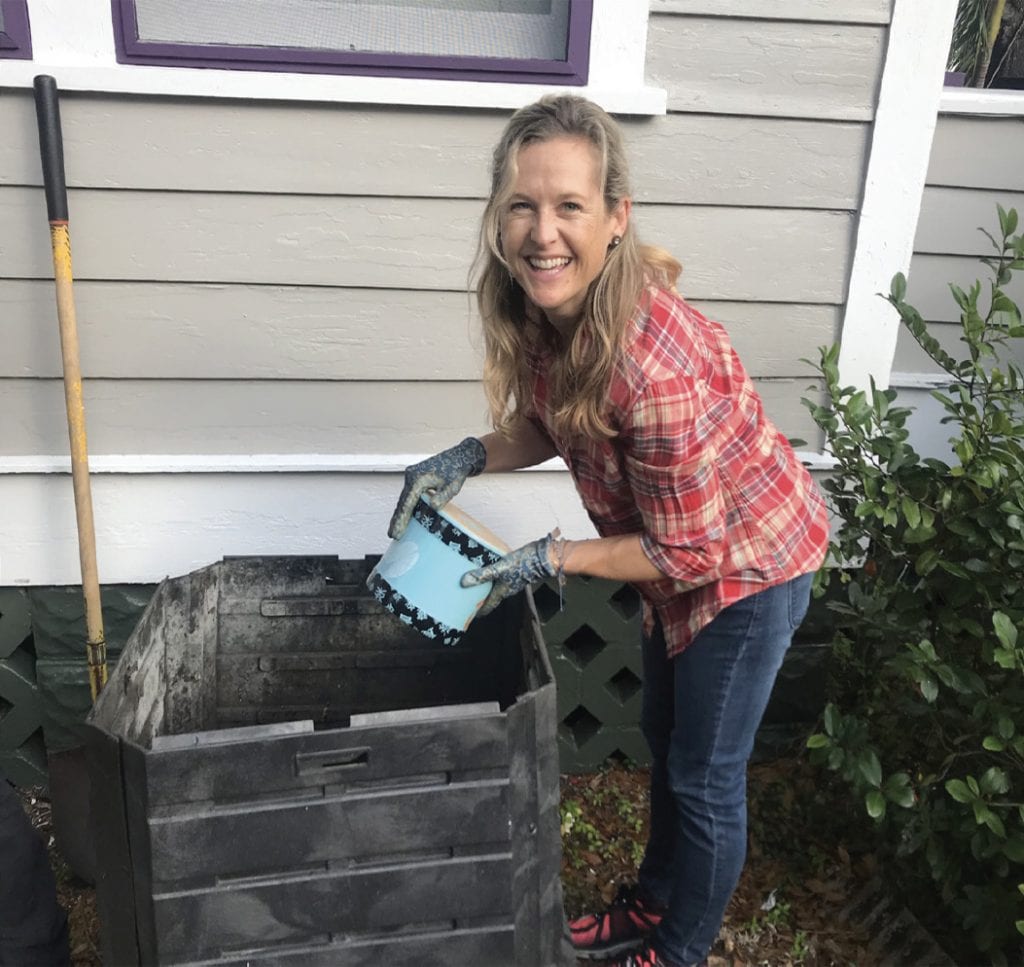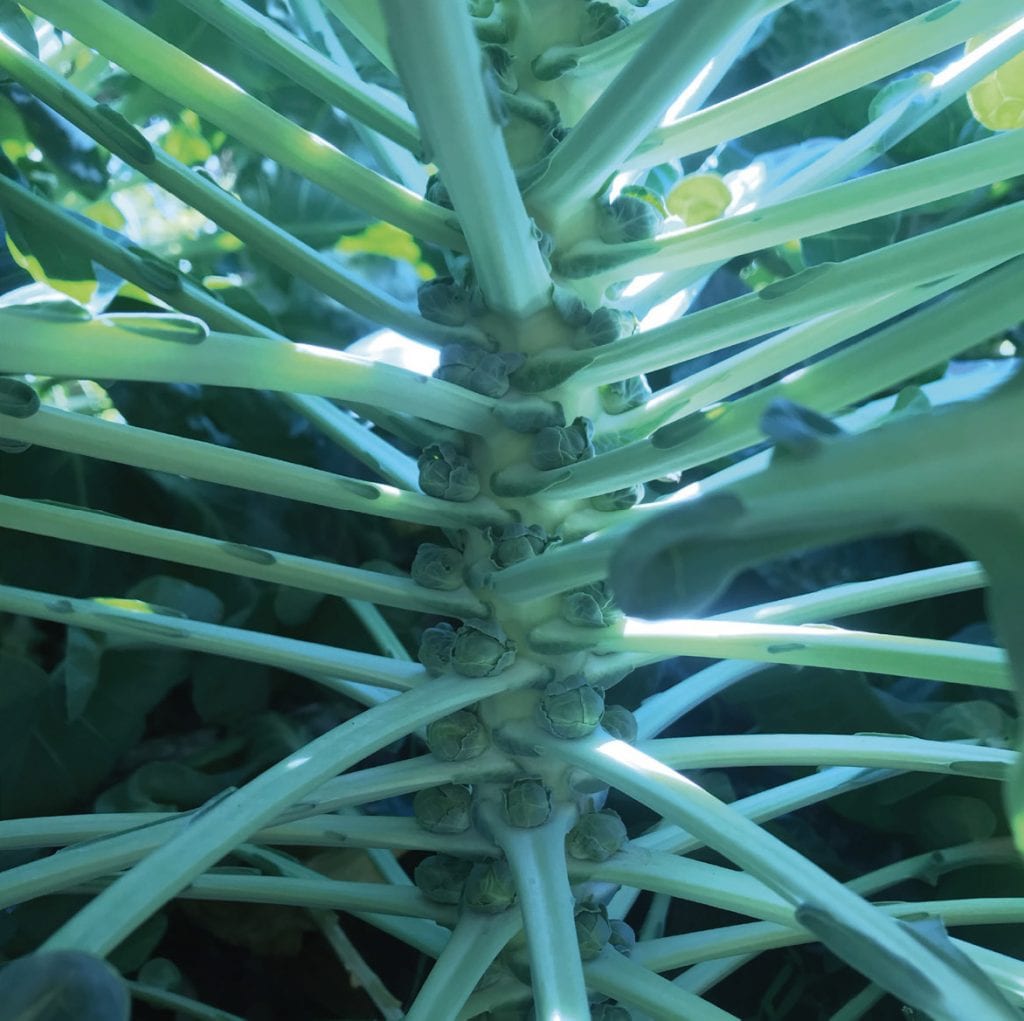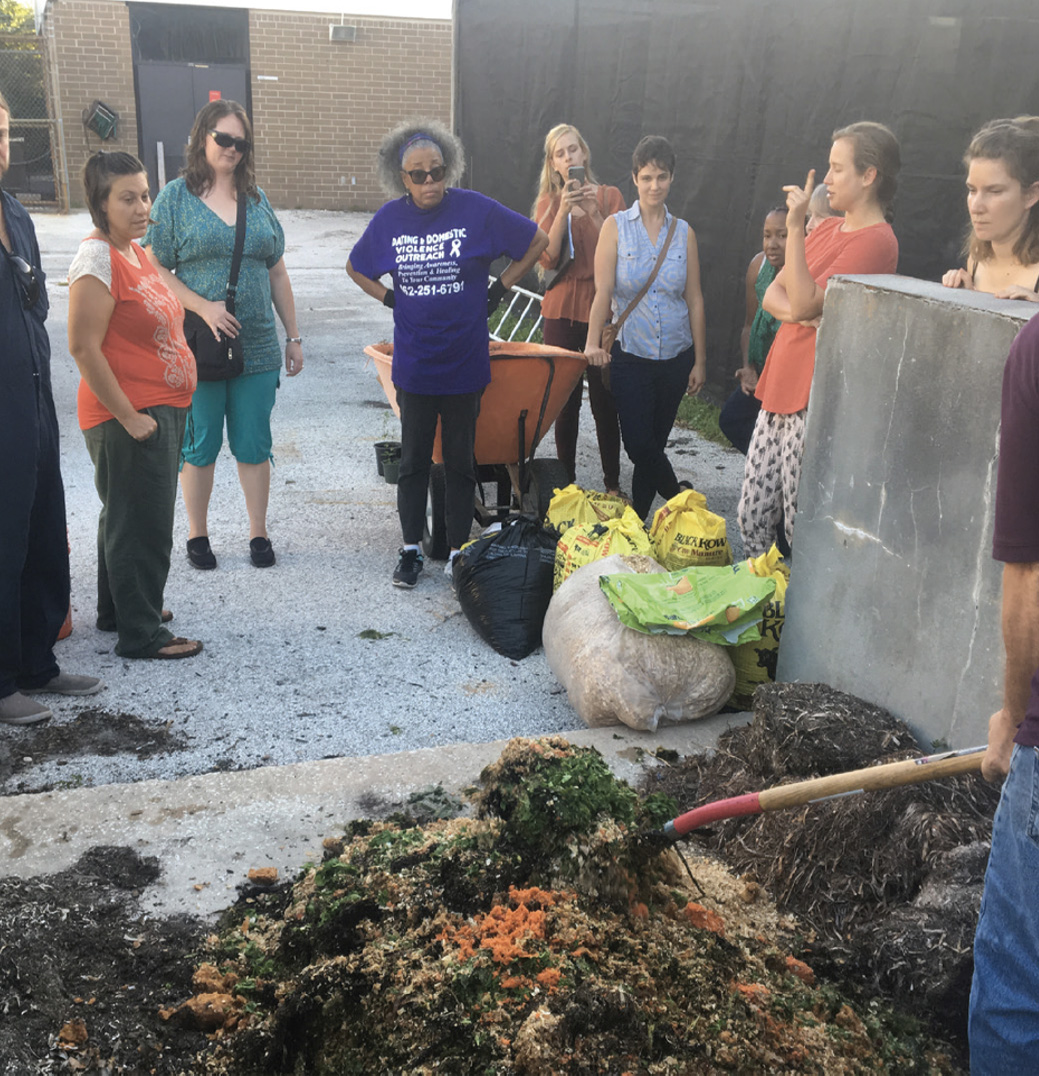All over Pinellas County, people are coming together to learn more about…soil. Good, rich garden-growing earth used to be a rare find in Pinellas County. Not any more! This little peninsula is growing up: Tech innovations are cutting their teeth here, and development is booming. As buildings go up, so does the number of residents, along with the amount of trash they produce. According to the 2019 Pinellas Recycling Guide, food waste is not yet available for recycle, and each individual produces about a pound of food waste per day. What does this have to do with soil? The Pinellas County Composting Alliance (PCCA) saw a need in this food-waste disconnect and saw a way to build healthier soils across the county. Members help individuals and neighborhoods convert food waste into garden soil.
How does PCCA work?
It’s simple. Its mission is to bring composting and food-waste reduction strategies to every neighborhood in the county. This purpose is driven largely by the recommendations laid out by Paul Hawken’s Project Drawdown, which places food-waste reduction as the No. 3 solution for reversing climate change. Furthermore, it aims to “de-mystify and de-ickify” the process and make it easy for residents. Many urban dwellers don’t have the time or space to set up and manage a composting bin for all of their own food scraps, and that’s okay. For those who do, there are options.

What about those who do compost or are compost-curious? The PCCA regularly provides classes to the public. The sessions aim to reduce waste and build soil, and they have an added benefit of building community. For Amanda Streets, one of the founders of the alliance, compost newbies elicit her favorite interactions. She loves cultivating soil-making confidence at workshops in order to help people figure out “Am I doing this right?” or answer “What bug is this?” There’s a sense of pride in in the process that results in some true garden gold after only a few short months and very little effort.
Is compost still a little icky?
Maybe your landlord isn’t keen on your side project, or maybe you live on the third story, and your balcony is your safe space. In that case, you can link up with existing composting hub spots around the county. That’s how Jen Andreani, another founder of the Alliance, ended up receiving more than 5,000 pounds of neighborhood food scraps in her yard over the course of a little over a year. She found it not only enriched her edible yard and made her fruit trees and vegetable plants happy, it also broadened her sense of community. She explains that it’s “heartwarming to see how happy people were to be able to bring their kitchen scraps to [her home] to be turned into soil instead of going to the landfill.”
Where can you drop off kitchen scraps?
Recently, PCCA teamed up with a California-based business that operates a map of nearby compost hubs. The organization, MakeSoil, playfully distinguishes its crowd between Soil Makers and Soil Supporters. Makers are residents and businesses who make compost on their properties and allow neighbors to drop off food scraps. Supporters want to reduce waste and connect with community, but are unable to compost. The map shows places for dropping off scraps. If you have your own production going on and you want in on the action, you can mark your space on the map with any additional instructions.
So whether you want to reduce your carbon footprint the easy way, meet your neighbor or start a new practice, food scraps plus carbon such as wood chips or sawdust plus time equals some of the best soil enhancement money can’t buy in Pinellas County.

Ready to get started?
Check out MakeSoil’s map here: https://www.makesoil.org/ Want to learn more? Visit https://mypcca.org/ to dig in for its next composting class on March 9th or check out the Sustainable Living Conference in Plant City on March 14th – 17th where they will also be teaching a class.



